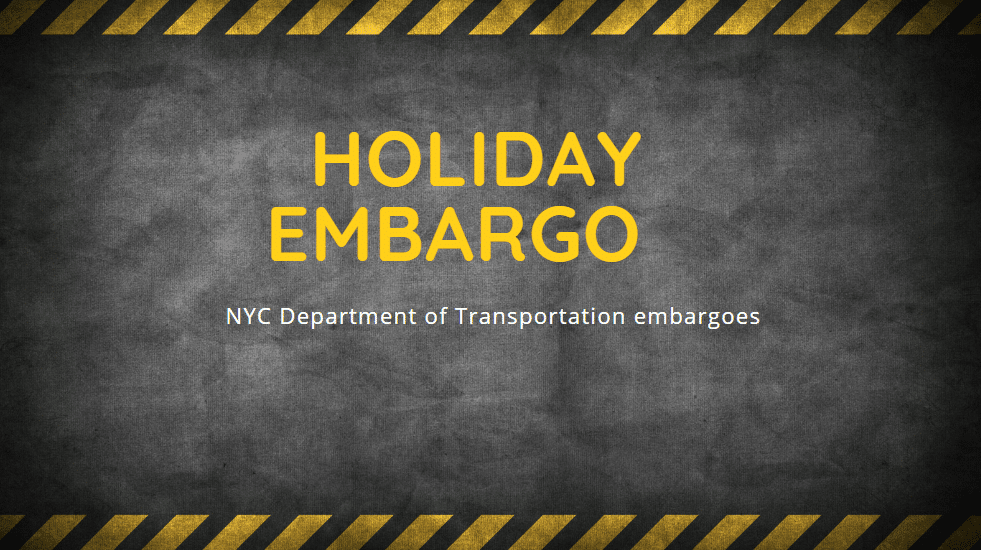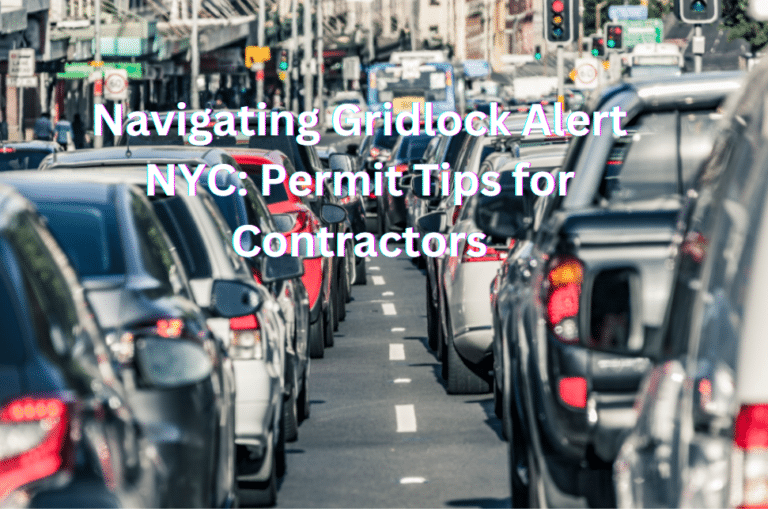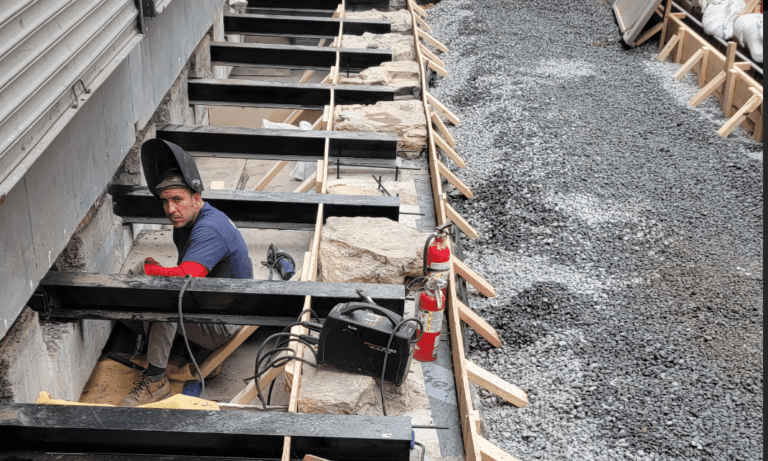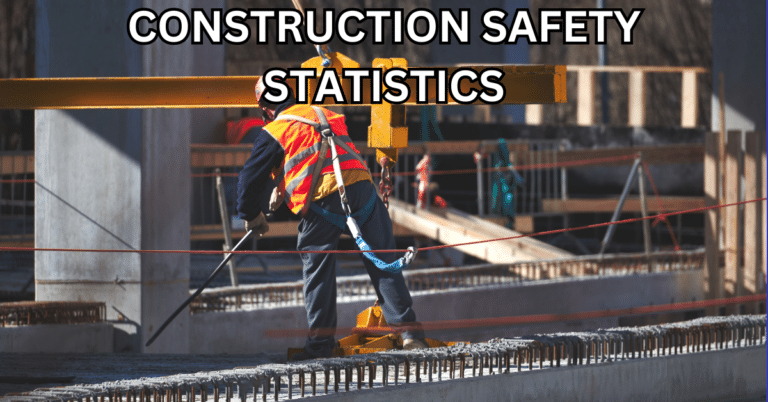Last Updated on January 23, 2025 by Jeffrey Calderon

Holiday Construction Embargo 2024: Best Contractor Guide
The holiday embargo is a pivotal time during construction that often goes unnoticed by homeowners and contractors alike.
This period, typically spanning from November 15 to January 2, affects the scheduling and execution of various construction projects. In this blog post, we will delve into the intricacies of holiday embargoes and their impact on your construction endeavors.
From understanding different types of embargoes to assessing their influence on ongoing or planned projects, our comprehensive guide will equip you with valuable insights for better decision-making during this critical time frame.
Stay tuned as we unravel the complexities surrounding holiday embargoes in an effort to help you navigate these restrictions effectively while maintaining project timelines and ensuring compliance with regulatory requirements.
Holiday Construction Embargo Overview
The holiday season is a time for celebration and spending quality time with loved ones.
However, in New York City, it also means the implementation of holiday embargoes on construction projects.
The NYC Department of Transportation (DOT) enforces these embargoes to minimize disruptions during the busiest shopping period of the year.
Holiday embargoes typically run from November 15th through January 2nd, restricting or prohibiting non-emergency work on specific streets throughout the city.
This embargo period aims to ensure smooth traffic flow and maintain public safety during this busy time when many people are out shopping, attending events, or traveling.
Types of Embargoes
The NYC DOT imposes two main types of construction embargoes:
- Full street closure restrictions: These restrictions prohibit any full closures on designated streets during specified hours.
- Lane closure restrictions: Under these restrictions, at least one lane must remain open for vehicular traffic at all times on designated streets.
In addition to these primary categories, there may be other temporary or location-specific embargoes imposed by the DOT based on current conditions and needs within certain areas.
Impact on Construction Projects
The imposition of holiday embargoes can have significant effects on construction projects in NYC. Contractors need to plan their work schedules around these limitations carefully as they cannot perform certain tasks such as excavation or crane operations during this restricted timeframe without obtaining an exemption from the DOT first. Furthermore, violating an embargo could result in hefty fines and penalties that may negatively affect project budgets.
Exemptions from Embargo
While the holiday embargo can be a significant hurdle for construction projects, there are certain exemptions that may be granted by the NYC DOT. These include:
- Emergency work: Projects deemed necessary to address immediate public safety concerns or maintain essential services.
- Public utility work: Work performed by public utilities to maintain or repair their infrastructure.
For certain projects, an exemption may be attainable if the criteria established by the DOT are met.
How to Apply for an Exemption
If you believe your project qualifies for an exemption from the holiday embargo, it is crucial to apply through the proper channels. The first step is submitting a request via the NYC DOT Street Construction Permits website. Be prepared to provide detailed information about your project and justification as to why it should be exempted from these restrictions. Bear in mind that success is not assured and will be contingent on various elements, including present traffic conditions and potential effects on neighboring businesses and inhabitants.
The Holiday Embargo Overview has provided a comprehensive overview of the various types of embargoes that can be imposed by NYC DOT. Now, let us delve deeper into the various kinds of embargoes that can be implemented by NYC DOT for homeowners and contractors.
The NYC Department of Transportation (DOT) enforces holiday embargoes on construction projects from November 15th through January 2nd to minimize disruptions during the busiest shopping period.
Contractors need to plan their work schedules around these limitations carefully as they cannot perform certain tasks without obtaining an exemption from the DOT first, which can be granted for emergency or public utility work if it meets specific criteria set forth by the DOT.
Types of Embargoes
NYC DOT embargoes are imposed to ensure public safety, minimize disruptions and manage construction activities in peak seasons. These restrictions are essential for ensuring public safety and minimizing disruptions in the city’s bustling streets. Let’s explore some common embargo types that may affect your construction projects.
Holiday Embargo
The most well-known type is the holiday embargo, which typically runs from November 15 to January 2 each year. During this period, non-emergency work on specific streets or areas designated by NYC DOT is restricted to minimize traffic congestion and ensure smooth travel conditions for residents and visitors alike during the busy holiday season.
Special Events Embargo
Apart from the annual holiday embargo, there may be temporary embargoes imposed due to special events such as parades, marathons, or street fairs. These restrictions usually last only for a few days surrounding an event but can still impact ongoing construction projects if they fall within affected areas.
Pedestrian Plaza Maintenance Embargo
In order to preserve pedestrian plazas’ cleanliness and functionality, maintenance embargoes might be enforced periodically by NYC DOT. This type of restriction prevents any new permits from being issued for work within these zones until necessary repairs or upgrades have been completed.
Traffic Control Device Installation/Maintenance Embargo
- Installation: When installing new traffic control devices like signals or signs at intersections where existing infrastructure must be removed first, this could cause significant delays in project timelines.
- Maintenance: During routine maintenance activities, such as repainting pavement markings or repairing damaged traffic signals, NYC DOT may impose a temporary embargo to ensure that work is completed quickly and efficiently without causing undue disruption to the public.
Understanding these different types of embargoes can help homeowners and contractors plan their construction projects more effectively. By being aware of potential restrictions during specific periods like the holiday embargo from November 15 to January 2, you can schedule your work accordingly and avoid unnecessary delays or complications.
Realizing the ramifications that NYC DOT embargoes can have on a construction venture is vital, thus one must be familiar with what these are and how they could affect their job. Moving forward, we will discuss the potential impacts these embargoes may have on construction projects.
NYC DOT imposes various types of embargoes throughout the year to manage construction activities and maintain traffic flow. The most well-known type is the holiday embargo, which restricts non-emergency work on specific streets or areas designated by NYC DOT from November 15 to January 2 each year. Understanding these different types of embargoes can help homeowners and contractors plan their construction projects more effectively.
Impact on Construction Projects
The holiday embargo period, which typically lasts from November 15 to January 2, can have a significant impact on construction projects in New York City. During this time, the NYC Department of Transportation (DOT) imposes restrictions on non-emergency work that requires permits, affecting both homeowners and contractors alike.
NYC DOT permits are necessary for various kinds of construction jobs that necessitate a public right-of-way, including street openings, sidewalk repairs and crane operations. The holiday embargo aims to minimize traffic disruptions during the busy shopping season by limiting such activities.
- Tightened schedules: Contractors must plan their projects around the embargo period or risk facing delays due to permit restrictions. This may lead to tighter schedules and increased pressure on project timelines.
- Increased costs: Delays caused by embargoes can result in higher labor and equipment costs as contractors scramble to complete work before or after the restricted timeframe.
- Limited availability of resources: With many companies trying to finish their projects ahead of the embargo deadline, there may be limited availability of materials and subcontractors during this time.
To mitigate these impacts, it is crucial for homeowners and contractors alike to stay informed about upcoming embargoes through sources like the NYC Design & Construction website. By understanding when an embargo will take effect and how long it will last, construction professionals can better manage their project schedules accordingly.
Avoiding Penalties
It is essential to adhere to the holiday embargo restrictions, as failure to do so can result in penalties. The NYC DOT’s rules and regulations outline fines for non-compliance, which may include:
- Civil penalties: Fines ranging from $1000 up to $5000 per day of unauthorized work.
- Criminal penalties: Misdemeanor charges with potential imprisonment or additional fines.
- Suspension or revocation of permits: Contractors found violating the embargo may have their existing permits suspended or revoked, further delaying project completion.
To prevent such penalties, it is essential for those involved to prepare and secure all the necessary permits before beginning any building projects during the holiday season.
The impact of the holiday embargo on construction projects can be significant, depending on its duration and scope. Nevertheless, certain exclusions from this ban may supply some help for those suffering its effects.
The holiday embargo period in NYC, from November 15 to January 2, affects construction projects that require permits. Contractors must plan their schedules around the restrictions or risk facing delays and increased costs due to limited availability of resources.
It is crucial for homeowners and contractors to stay informed about upcoming embargoes and obtain necessary permits before commencing any work during the holiday season to avoid penalties.
4. Exemptions from Embargo
The NYC DOT holiday embargo aims to reduce traffic congestion during the busy period between November 15 and January 2. However, there are certain exemptions that may be granted by the NYC DOT for specific construction projects or emergency work.
A. Emergency Work
In cases where emergency work is required, an exemption may be granted by the NYC DOT. This type of work includes repairs necessary to protect public safety or prevent significant property damage, such as fixing a water main break or repairing a gas leak. In order to be eligible for an exemption, contractors must submit evidence demonstrating that postponing the job would create a risk to public safety or lead to considerable property harm.
B. Public Utility Projects
Public utility companies may also apply for an exemption if their construction projects involve essential services like electricity, gas, water supply systems, telecommunications networks and more. These types of projects are considered critical infrastructure and can sometimes receive special consideration during embargo periods.
C. Special Circumstances
- Necessary Street Closures: If street closures are unavoidable due to ongoing construction activities outside of the embargo period (e.g., crane operations), then an exception might be made on a case-by-case basis after thorough evaluation by NYC DOT officials.
- Economic Hardship: In some instances where businesses face severe economic hardship due to delays caused by embargoes (e.g., seasonal industries), they can request exemptions based on these grounds with proper documentation supporting their claim.
To increase your chances of obtaining an exemption from holiday embargoes in New York City, it’s essential to provide thorough documentation and justification for your request. This may include detailed project plans, proof of emergency work necessity or evidence of economic hardship.
Keep in mind that exemptions are not guaranteed and will be granted at the discretion of NYC DOT officials. It is crucial to plan ahead and consider potential embargo periods when scheduling construction projects in New York City.
D. Applying for Exemptions
If you believe your construction project qualifies for an exemption from a holiday embargo, you can apply through the NYC Street Works Manual. The manual provides guidelines on how to submit requests for exemptions along with all necessary supporting documents required by the NYC DOT.
The exemptions from embargo are an important part of the permit process, so it is essential to understand them. To apply for an exemption, you must meet certain criteria and follow specific procedures outlined by NYC DOT.
The NYC DOT imposes a holiday embargo between November 15 and January 2 to reduce traffic congestion. However, exemptions may be granted for emergency work, public utility projects, necessary street closures or economic hardship with proper documentation supporting the claim.
To apply for an exemption from a holiday embargo, speak with one of us box edit.
5. How to Apply for an Exemption
If your construction project requires work during the embargo period, you may be eligible for an exemption from the NYC DOT holiday embargo. This section will provide information on how to apply for an exemption and what factors are considered when granting exemptions.
Eligibility Criteria
To qualify for a holiday embargo exemption, your project must meet one of the following criteria:
- Emergency Work: If there is a risk to public safety or property due to unforeseen circumstances, such as utility failures or structural damage, emergency work can be performed during the embargo period with proper authorization.
- Necessary Infrastructure Maintenance: Some projects involving essential infrastructure maintenance may also be exempted if delaying them would cause significant disruption in services or pose potential hazards.
- Economic Hardship: In rare cases where postponing construction until after January 2 would result in severe economic hardship, exemptions might be granted at the discretion of NYC DOT officials.
The Application Process
To apply for a holiday embargo exemption, follow these steps:
- Determine if your project meets the eligibility criteria outlined.
- Gather all necessary documentation supporting your case. This includes permits already obtained (if applicable), proof of emergency situation (e.g., photographs or reports detailing damages), evidence demonstrating economic hardship (financial statements), and any other relevant documents that strengthen your application.
- Visit the NYC DOT Permits website and download the appropriate application form for your project type. Complete all required fields, attach supporting documents, and submit it to the specified address.
- Wait for a response from NYC DOT officials. They will assess your application and decide whether an exemption is suitable depending on factors such as public safety, economic implications, and the possibility of completing the work during embargo.
Note that even if you are granted an exemption from the holiday embargo, you must still comply with any other applicable permits or regulations governing construction in New York City.
Reach out to our team members at Permits In No Time and they’ll be happy to answer any questions you may have regarding your work and how the Holiday Embargo may affect it.
EMAIL FOR INFO
Tips for a Successful Application
To increase your chances of obtaining a holiday embargo exemption:
- Submit your application well before November 15 to allow sufficient time for processing.
- Provide clear and concise documentation that demonstrates why an exemption is necessary for your specific project.
- Be prepared to adjust work schedules or make other accommodations if needed in order to minimize disruptions during this busy season in New York City.
If your construction project requires work during the holiday embargo period, you may be eligible for an exemption by applying to NYC DOT. The eligibility criteria include emergency work, necessary infrastructure maintenance or economic hardship. To increase chances of obtaining an exemption, submit clear and concise documentation well before November 15 and be prepared to make adjustments if needed to minimize disruptions during this busy season in New York City.
Conclusion
In conclusion, the Holiday Embargo is a restriction on construction projects during specific holidays. There are different types of embargoes that can affect homeowners and contractors alike, causing delays in their work. However, exemptions from the embargo exist for certain situations such as emergency repairs or public safety concerns.
If you are seeking a waiver, make sure to abide by the right protocols and submit all required papers. Permits In No Time can help with obtaining DOT permits and navigating through the process.
Don’t let holiday embargoes hold up your construction project – contact Permits In No Time today to learn more about how we can assist you in obtaining DOT permits through the Holiday Embargo!






